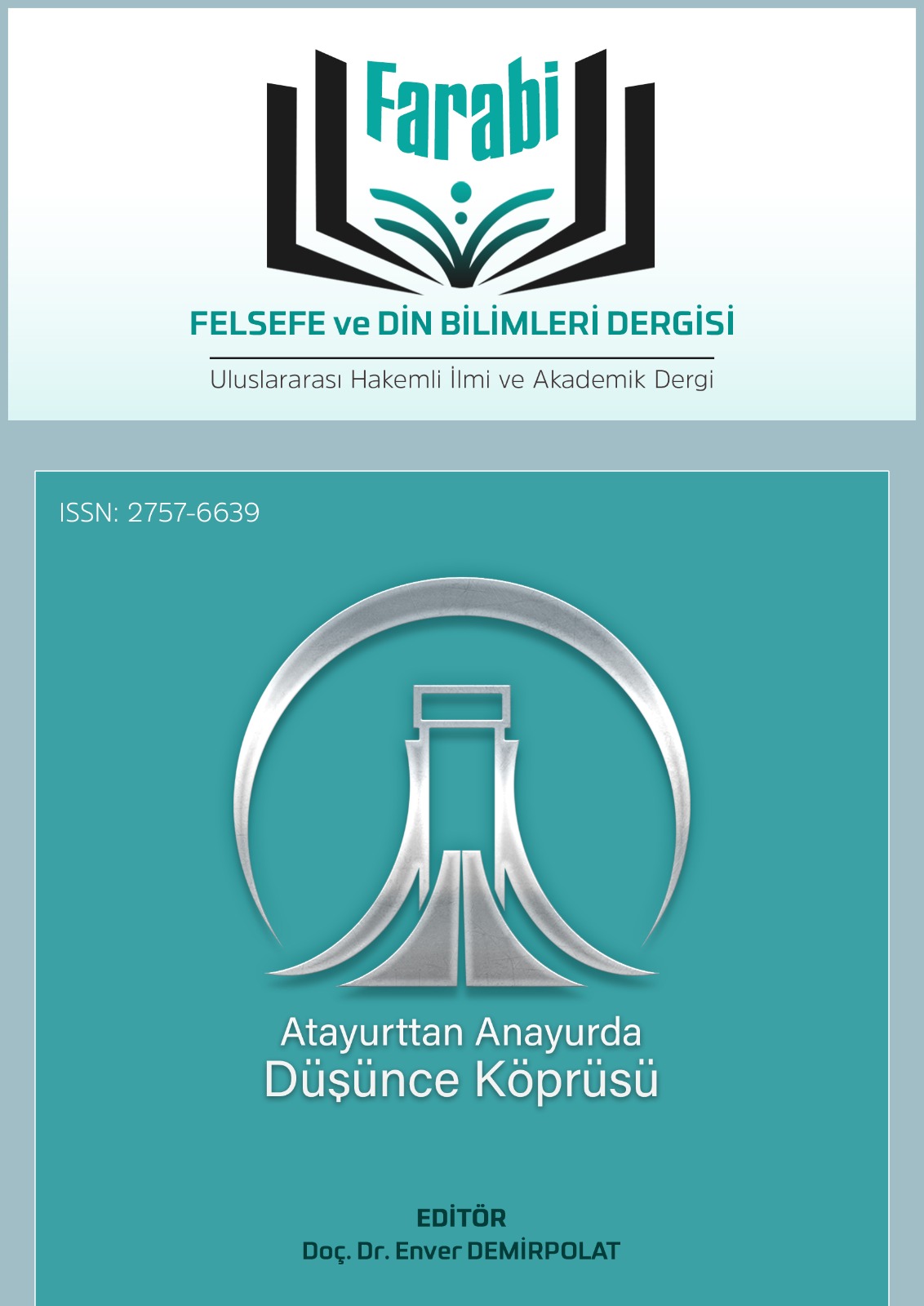Author :
Abstract
Ağırlıklı olarak XI. Asrın sonlarında yaşamış olan Gazâlî, kendi dönemiyle beraber önceki dönemleri inceleyip, özgün eleştiriler yapan bir İslam düşünürüdür. İlimler eleştirisi yapan Gazali’nin, hayatında önemli değişiklikler meydana gelmiştir. Hayatının bazı dönemlerinde şüphe ve ruhi bunalımlar yaşamış olsa da güçlü kişiliğiyle bu girdaptan çıkmayı başarmış, hayatı boyunca ilmi çalışmalar yapmaktan geri durmamıştır. Gazâlî, yaşadığı çağda öne çıkan ilim dallarını araştırmış, pek çok bilim dalında uzmanlaşmıştır. Sırasıyla Bâtıniye (Talimiye), Kelam, Felsefe, Tasavvuf gibi İslami ilimlerin metotlarını incelemiş ve bu ilim dallarının kritiğini yapmıştır. Filozof yaptığı bu araştırmalar sonunda tasavvufta karar kılmış ve bu yolu takip etmiştir. Gazâlî, bilginin kaynağı probleminde duyu organları ve aklın, kesin bilgiye ulaşma konusunda yetersiz kaldığını, kalbin yaşayacağı tecrübelerle eşyanın hakikati bilgisine ulaşılabileceğini kabul etmektedir. Bu çalışmada filozofun ilimler eleştirisini inceleyerek onun bu ilimlere olan yaklaşımı hakkında değerlendirmeler yapmayı amaçlıyoruz.
Keywords
Abstract
Mainly Ghazali, who lived at the end of the XI.century, is an Islamic thinker who examines the previous periods together with his own period and makes original criticisms. Ghazali, who made a criticism of sciences, had important changes in his life. Although he experienced doubts and spiritual depressions in some periods of his life, he managed to get out of this whirlpool with his strong personality, and he did not refrain from doing scientific studies throughout his life. Ghazali researched the prominent branches of science in his age and specialized in many branches of science. He examined the methods of Islamic sciences such as Bâtiniyya (Talimiye), Kalam, Philosophy and Sufism, and made a critique of these branches of science. At the end of these researches, the philosopher decided on Sufism and followed this path. Ghazali accepts that in the problem of the source of knowledge, the sense organs and the mind are insufficient to reach certain knowledge, and that the knowledge of the truth of things can be reached with the experiences of the heart. In this study, we aim to analyze the philosopher's criticism of sciences and make evaluations about his approach to these sciences.
Keywords
- Arslan, Ahmet, İslâm Felsefesi Üzerine, Vadi Yay., Ankara, 1999.
- Arnaldez, Roger, “İslâm’da Felsefi Düşünce Nasıl Kötürümleşti?”, Çev. Ahmet Arslan, Ankara Üniversitesi Dil ve Tarih-Coğrafya Fakültesi Dergisi, C. 28, S. 1-2, 1970.
- Bayrakdar, Mehmet, İslam Felsefesine Giriş, Ankara 2001.
- Bolay, Süleyman Hayri, Aristo Metafiziği ile Gazali Metafiziğinin Karşılaştırılması, İstanbul 1993.
- Bulaç, Ali, İslam Düşüncesinde Din-Felsefe/Vahiy-Akıl İlişkisi, İstanbul 1994.
- Corbin, Henry, İslam Felsefesi Tarihi, C. I, çev., Hüseyin Hatemi, İstanbul 2008.
- Çubukçu, İbrahim Agâh, Gazali ve Şüphecilik, Ankara 1989.
- Çubukçu, İbrahim Agâh, Gazzâli ve Kelam Felsefesi, Ankara Üniversitesi İlahiyat Fakültesi Yayınları, Ankara, 1970.
- Çubukçu, İbrahim Agâh, İslâm Düşünürleri, Ankara Üniversitesi İlahiyat Fakültesi Yayınları, Ankara, 1973.
- Fahri, Macit, İslam Felsefesi Tarihi, çev., Kasım Turhan, İstanbul 2000.
- Gazalî, Feḍâʾiḥu’l-Bâṭıniyye (nşr. Abdurrahman Bedevî), Kahire 1383/1964.
- Gazali, El-Munkızu mine’d Dalal ve Tasavvufi İncelemeler, çev., Salih Uçan, İstanbul 2008.
- Gazali, Felsefenin Temel İlkeleri, çev., Cemaleddin Erdemci, Ankara 2002.
- Karadaş, Cağfer, Gazali, İstanbul 2004.
- Ayni, Mehmet Ali, Hüccetü’l İslam İmam Gazali, Haz. Ebubekir Subaşı, İlk Harf Yay., İstanbul, 2020.
- Alper, Ömer Mahir, “Gazali’nin Felsefî Geleneğe Bakışı: O Gerçekten Bir Felsefe Karşıtı mıydı?”, İstanbul Üniversitesi İlahiyat Fakültesi Dergisi, Sa. 4, 2001.
- Şerif, M. Muhammed, Klasik İslam Filozofları ve Düşünceleri, çev., Mustafa Armağan, İstanbul 2000.
- Uludağ, Süleyman, İslam Düşüncesinin Yapısı, İstanbul 1994.
- Ülken, Hilmi Ziya, İslâm Felsefesi Eski Yunan’dan Çağdaş Düşünceye Doğru, 3. Bs., Ülken Yay., İstanbul, 1983.
- Zerrinkub, Abdülhüseyin, Medreseden Kaçış; İmam Gazali’nin Hayatı, Fikirleri ve Eserleri, çev., Hikmet Gök, İstanbul 2007.





